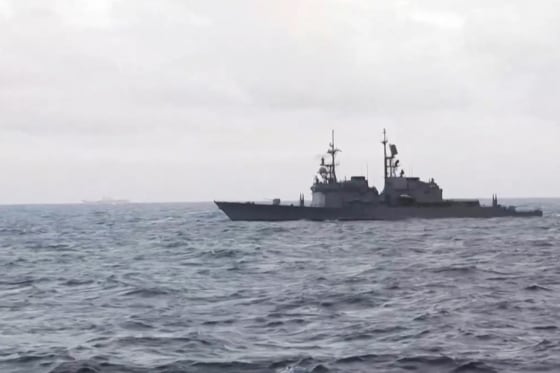Taipei, April 2, 2025 – China has completed a massive two-day military exercise surrounding Taiwan, a move that has raised alarm across the region and beyond. The drills, which featured long-range, live-fire operations in the East China Sea, simulated precision strikes on key infrastructure targets, highlighting Beijing’s growing military assertiveness.
The exercises, led by the Eastern Theatre Command, tested what China described as “integrated joint operations capabilities,” involving coordinated maneuvers by ground, naval, air, and rocket forces. China’s military declared that the war games successfully demonstrated its ability to conduct rapid and decisive operations, vowing to “thwart any separatist activities seeking Taiwan independence.”
A Message to Taiwan and the West
The timing of the drills follows heightened tensions between Beijing and Taipei, with China ramping up its rhetoric against Taiwan’s President Lai Ching-te. Beijing has repeatedly branded Lai a “separatist,” dismissing his administration’s rejection of Chinese sovereignty claims. The escalation also comes amid a visit to the region by U.S. Defense Secretary Pete Hegseth, who has openly criticized China’s aggressive military posture.
As part of the operation, Chinese forces conducted precision strikes on simulated targets representing critical energy and transportation hubs. Video footage released by the Chinese military showed rockets hitting land-based targets, with an animated sequence depicting strikes on major Taiwanese cities, including Tainan, Hualien, and Taichung—home to significant military bases and ports. The exercise emphasized disrupting supply routes and controlling energy corridors, underscoring Beijing’s broader strategic aims.
Taiwan’s military, while closely monitoring the situation, activated its own rapid-response drills to counter the perceived threat. On the second day of the Chinese exercises, Taipei’s defense ministry reported tracking 36 Chinese aircraft, down from 76 the previous day, along with multiple warships operating near the island. Taiwan insisted it remained fully prepared to defend its sovereignty and denounced the drills as an attempt at intimidation.
International Condemnation and Rising Global Concerns
The military maneuvers have drawn swift condemnation from Taiwan’s allies, with the United States leading the charge. The U.S. State Department warned that China’s “aggressive military activities” threatened regional stability and global economic security. Japan and the European Union also expressed deep concern, with EU officials emphasizing that any unilateral change to the status quo in the Taiwan Strait would be unacceptable.
China, however, dismissed these criticisms, reiterating that Taiwan is an internal matter and that no foreign interference would be tolerated. Beijing’s Foreign Ministry reaffirmed that the exercises were necessary to safeguard national sovereignty and prevent external forces from encouraging separatist movements.
Meanwhile, China’s military activities extended beyond Taiwan’s immediate vicinity. The aircraft carrier Shandong participated in exercises to the east of the island, demonstrating integrated air and naval combat capabilities. Beijing’s use of advanced weaponry, including YJ-21 air-launched ballistic missiles deployed from H-6K bombers, added another layer of complexity to the region’s security dynamics.
A Tense Future for Cross-Strait Relations
Taiwan, which has lived under the constant threat of Chinese military action since 1949, has not reported any disruptions to civilian travel or trade due to the latest drills. However, officials have urged caution, warning citizens against unnecessary travel to China, Hong Kong, or Macau, citing increased risks amid growing hostilities.
Beijing’s latest war games appear to serve multiple purposes—reinforcing its stance on Taiwan, signaling strength to the U.S. and its allies, and preparing its military for potential future conflicts. With geopolitical tensions already running high over trade disputes and military confrontations in the South China Sea, this latest escalation further underscores the fragile state of global security.






0 Comments